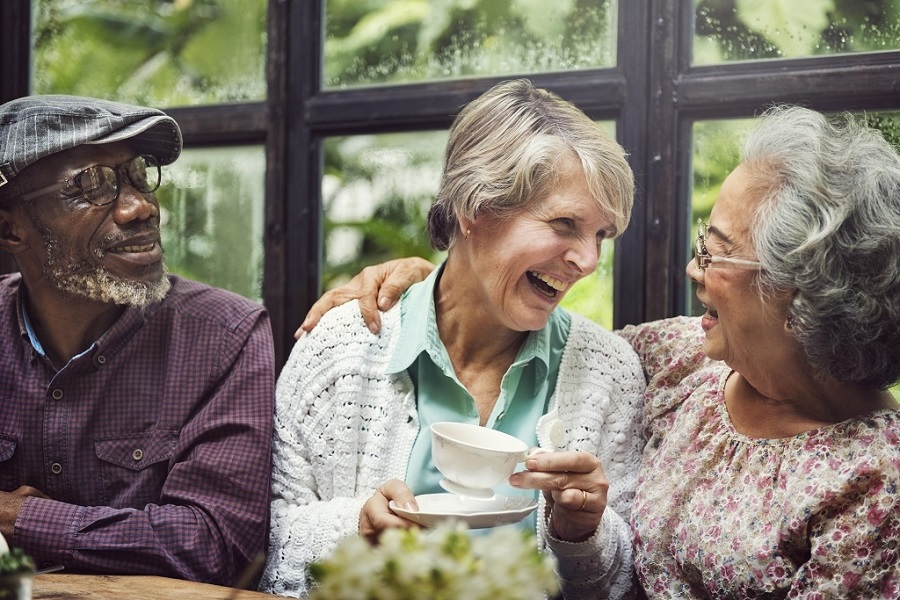
Pros and Cons of Drinking Coffee for Seniors
Do you think you should set aside your cup of coffee in old age? You may need to get rid of this mindset. Coffee consumption for the elderly can improve many age-related diseases, such as dementia, Alzheimer’s, and heart problems. This article will try to acquaint you with the advantages and disadvantages of drinking coffee for seniors.
Benefits of Coffee Consumption for the Elderly
Coffee can be a good antioxidant for you because of its caffeine; This means that coffee can fight potential injuries in various ways and improve the elderly’s health.
Strengthening your heart
Recent studies show that drinking coffee can boost seniors’ heart condition. Researchers analyzed heart attacks in mice and then looked at how coffee alters their cardiovascular system’s behaviour. The research team found that coffee influences a protein called P27, which helps our heart beat and be active. These proteins are activated by coffee consumption and can support blood cells in the heart. This study showed that the P27 protein stimulated by coffee consumption prevents the death of heart cells during heart attacks in the elderly and promotes cells containing contractile fibre for heart function. As you grow older, your blood vessels harden, and your risk of heart attack or stroke increases; drinking a cup of coffee a day can slow down the effects of aging on the arteries and prevent heart attacks to some extent.
Improving Cognitive Status
Coffee consumption may help prevent age-related mental disorders. Coffee contains caffeine and other natural compounds that may have neuroprotective effects, which may help to prevent Alzheimer’s disease. While more research is needed to fully understand the potential benefits of coffee for preventing Alzheimer’s disease, the evidence suggests that regular coffee consumption may have neuroprotective effects and could help to reduce the risk of developing Alzheimer’s disease. However, it is essential to note that excessive caffeine consumption can adversely affect health, so moderation is key. Studies have shown that cardiovascular disease and dementia risks are higher in the middle-aged and older age groups, and caffeine may reduce the risk of these disorders.
Reducing the Risk of Stroke
As you know, the hardening of the arteries in old age causes stroke and eventually movement disorders. A new study in 2018 revealed that consuming just one cup of coffee a week can reduce the risk of stroke and heart failure to a great extent.
Longer Life with Coffee
You can experience a longer life by drinking coffee. A joint multi-state study conducted simultaneously found that people who drank coffee had a lower overall death risk.
Improving Mental Health
Drinking coffee can boost your mood. Coffee helps you to feel more motivated and alert. It may also prevent or delay some mental disorders such as depression in the elderly.
Reducing the Risk of Cancer
Some studies show that drinking coffee four days a week reduces the risk of some mouth and gastrointestinal tract cancers.
Improving Physical Function
Drinking coffee every morning can significantly improve physical function. Caffeine can stimulate the nervous system’s function and transmit signals to fat cells to break down body fat and release the fatty acids into the blood and use them in the body as fuel.
Reducing Depression
Depression is a severe mental disorder that can lead to low quality of life. Depression is everywhere, and many people worldwide suffer from clinical depression. According to a Harvard University study, senior women who drank four or more cups of coffee a day had a 20 percent lower risk of developing depression.
Improving Energy Levels
caffeine can help you increase your energy levels. After drinking coffee, caffeine is absorbed into your bloodstream and goes to your brain. Caffeine in the brain blocks a transporter nerve called adenosine. When this happens, the number of other neurotransmitters increases and triggers the firing of neurons. Many studies show that coffee can help improve various brain functions, including mood, memory, energy levels, alertness, reaction time, and general cognitive function. It is necessary to note that if you have insomnia or other sleep disorders, Do not drink coffee after 4 PM because increasing energy can worsen your sleep disorders.

Contents
Side Effects of Drinking Coffee for Seniors
Caffeine in coffee is known to be a stimulant. It means that coffee increases the activity of your central nervous system. It can be a problem for the elderly who suffer from anxiety, stress, and body tremors (such as hand tremors) and increase their anxiety. Some other disadvantages of coffee consumption for the elderly are as follows:
- Migraine
- insomnia
- Frequent urination
- Muscle and hand tremors
- Anxiety or restlessness
- Diarrhea and digestive problems: Coffee increases stomach acid amounts due to speeding up digestion, which causes a burning sensation.
- Increased heart rate: this may harm the elderly with heart problems and cardiac arrhythmias.
- Dehydration: One of the major problems for the elderly is dehydration, and coffee consumption can increase this.
- High blood pressure: this may be dangerous in the elderly with high blood pressure or for those suffering from severe cardiovascular problems.
Tips on Drinking Coffee for Seniors
Consuming about 400 mg of coffee a day is safe for most adults. Research has shown that the maximum amount of coffee drinking in adults is four small cups a day and consuming more than this can cause many side effects.

Drinking coffee with some medications can cause drug interactions. If you are taking medications such as ephedrine or theophylline, stop drinking coffee.
Older adults taking certain medications should consult their doctor to prevent possible side effects. In general, the standard amount of coffee consumption is different for each person. A general formula for coffee consumption cannot be given.
Final Words
The benefits of caffeine in coffee, especially for the elderly, may surprise you; But know that aging is full of surprises and changes. Like all medicines, foods, supplements, and beverages, consuming coffee has side effects that you can turn into a healthy drink by drinking the suitable dose and consulting your doctor.
More Resources:
I used to be a coffee addict. But because of my blood pressure, I had to switch to herbal teas. It wasn’t easy at first. But I succeeded. Green tea is excellent, it’s rich in caffeine. And it won’t raise your blood pressure. Hibiscus tea is also excellent because of its unique taste.
I enjoy coffee, yet it is like a drug that also has health benefits. It instantly makes you feel better. It improves your productivity. However, there are risks. Caffeine makes your life a living hell if you consume a lot of it in a day. It is also harmful to you. As a result, you should always consume the recommended amount of caffeine each day. It is equivalent to 2–3 cups of coffee. It is also the type of coffee that determines how much to take in a day.
I used to be a coffee addict as well. To be honest, if coffee didn’t give me headaches for the next 5 hours of the day, I would still be drinking it nonstop. I don’t know why but most of my days, I am constantly feeling tired, and not drinking coffee has only made things worse. I searched a bit about why it gives me a headache and realized that apparently every person has a caffeine tolerance, and it’s possible to become sensitive to caffeine even if it hasn’t always been the case. I’ll be looking forward to trying herbal teas and seeing whether they can give me the boost I get from coffee without the headache or not. Thank you, Valerie.
I am an Iranian citizen of Canada; I lived in Iran before moving to Canada. In my hometown, we drink some herbal tea, that name is mountain tea. It was wonderful material and really good for relaxing and controlling blood pressure. So I hope we produce these useful herbals in Canada.
I hope so too, but as you might know, each drink has its benefits, and we’d better not limit ourselves to just one particular type and deprive our body of the benefits of others. What has always pleased to me about coffee is its smell. I’m literally crazy about its smell but wasn’t aware of this number of benefits ut has. An informative article it is.
I still remember when I used to drink four cups of coffee every day when I was in my thirties. Now that I’m older, I’m forced to switch to tea, but I still can’t go on without drinking coffee, so I decreased four cups to one cup a day. I hated it at first, but now I actually like tea a little bit more.
No doubt, drinking coffee has numerous benefits. However, I can’t drink coffee more than 2 cups per day due to its diuretic effect. I suggest that people like me drink different teas rather than coffee. Most teas are a great source of health-promoting ingredients and fewer side effects on sleep disorders or dehydration.
I feel more energized when I drink coffee, especially one cup of coffee in the morning, .and it’s excellent that drinking one or two cups of coffee per day can reduce the risk of cancer and diabetes. But when it comes to elders drinking more than 2 cups of coffee can cause health problems like anxiety or headaches, so it’s better to be careful about their regime.
It’s been ten years since I drank my last cup of coffee 🙂
Due to heart problems and increased heartbeats, the doctor has banished me from drinking coffee.
Maria, you can not imagine how I missed the taste of coffee. For the same reason, I can not even think of it. Instead, I drink green tea, and God, I hate it.
I usually bring homemade coffee for my grandma because it helps her digestive system. Although it has many positive additions, it can increase their blood pressure at times, so you’ll have to consider this before buying a frappuccino from your local Starbucks.
Can’t start a day without coffee. My day would be ruined if my coffee went bad or changed. It keeps me going through the whole day.
Well, the usual cons of drinking coffee are essentially its pros but taken to extremes, isn’t it? As a coffee lover myself, I’ve done extensive research on it.
Overstimulation of the CNS can sometimes lead to difficulty falling asleep and unwanted cardiac stimulation. I’ve heard that caffeine can cause increased difficulty with urination and prostatic bleeding, but I don’t know anyone with such issues.
I love my morning coffee, I wake up thinking about it, but I don’t allow myself to drink more than two cups daily. I dread the day I may have to give up coffee altogether.
I drink tea more often, and I can drink as many cups as I want throughout the day. Caffeine has been associated with various illnesses and migraines; tea has been an essential part of a traditional prescription for curing sicknesses. Also, coffee has more caffeine than tea, and caffeine has many side effects for older adults like me. I think tea gives an energy boost that makes me more relaxed and energized. Tea is an excellent choice if you try to lessen your caffeine intake.